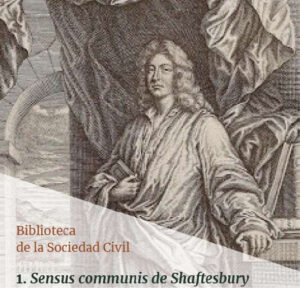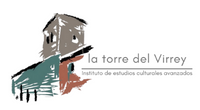 Seminario: Biblioteca de la Sociedad Civil
Seminario: Biblioteca de la Sociedad Civil
1. Shaftesbury, Sensus communis
Prof. Dr. Antonio Lastra
«Les quatre grands poetes Platon le Pere Malbranche milork Shaftsbury Montagne» (Montesquieu, Pensées 1092). La tutela de John Locke y la reticencia de Shaftesbury: «The Temper of the Pedagogue sutes not with the Age. And the World, however it may be taught, will not be tutor’d. If a Philosopher». ¿Un humanista platónico o -como defiende Jonathan Israel- un ilustrado radical? «Truth, is supposed, may bear all lights.» Shaftesbury entre Bayle y Diderot: de las conversaciones en Rotterdam a la traducción de An Inquiry Concerning Virtue and Merit al francés. Las Characteristicks of Men, Manners, Opinions, Times (1711): tratado, carta, ensayo, consejo, soliloquio, investigación, rapsodia, miscelánea «There is nothing so foolish and deluding as a partial Scepticism.» Razón, sentimiento e imaginación: la cultura visual de Shaftesbury. «All Politeness is owing to Liberty»: de la Politeness de Shaftesbury a la Zärtlichkeit de Lessing. Las dos filosofías.
Sensus communis: un ensayo sobre la libertad de ingenio y humor (1709). Desde la política: «… where absolute Power is, there is no PUBLICK.» Hacia la estética: «For all Beauty is TRUTH». […]
24 de septiembre de 2020





